This guest post comes from a non-scientist, not even a former scientist or a citizen scientist or someone who always wanted to be a scientist. Cheshire is namely a person with a proper job, and always was. But they recently decided to apply their common sense and their good eye for image irregularities to flag bad science on PubPeer and to the alert journals and publishers, inspired by the legendary Elizabeth Bik. Let’s hope Cheshire will in turn inspire others, because research integrity needs less peer reviewed literature on the topic, but instead more activism, by scientists and non-scientists alike. It needs every helping hand to actually expose fraud, incompetence and quackery. This is Cheshire’s guest post.
Down The Rabbit Hole
The Misadventures of a Non-Scientist
By “Cheshire” @Thatsregrettab1 on Twitter
Dr. Schneider kindly invited me to share some of my experiences as a non-scientist in the world of scientific research integrity. In this post, I’ll briefly explain how I got here and then recount a few of my adventures along my short (so far) journey. A note: I have posted here and elsewhere without using my real name in order to keep my professional and private Internet profiles separate, to the extent that this is possible. I appreciate Dr. Schneider’s support of that preference.

While I have no scientific background, I’ve had a layperson’s curiosity about science, medicine and technology for many years and regularly read blogs and news sites on these subjects (a few: Ars Technica, Neuroskeptic, Science Daily, Phys.org, Retraction Watch). The last is the most relevant to the story here, as I read with incredulity their November 2018 story about Dr. Richard Maximus Fleming. Until I read that story, I was primarily a passive reader of that site, although I posted occasional questions and snarky comments.
Dr. Fleming, aka Dr. who?
As I recounted in some of my comments on that Retraction Watch blog post (there I post under the name “Regret”), I was unaware of Dr. Fleming until that article but was curious enough about this apparent modern-day Renaissance Man that I hopped on Google to read more about him. And that started this adventure for me.
In the Retraction Watch comments, I shared some of what I’d discovered, namely that Dr. Fleming seems a bit, shall we say, inconsistent about his credentials and affiliations. But surprisingly, Dr. Fleming responded to questions and comments on Retraction Watch with entertainingly meandering vagueness and arrogance. This engagement petered out in late November 2018, but the discussion got me to sign back up for Twitter (where I started following scientists, especially those interested in research integrity), and to comment on and also to post a few of Dr. Fleming’s “papers” on PubPeer.
To my great enjoyment, Dr. Fleming responded to the PubPeer posts (on PubPeer and Twitter) and has continued to not only publish his “research” in low quality journals but to strike out against those questioning his research or background. He challenged Dr. Elizabeth Bik to a debate on national TV and responded to one of my comments on PubPeer with:
“I have seen these same KETO stalkers before using the same fungal name identifiers attacking science that they did not like so they could promote through stalking, bullying and harassment their agenda. Actinopolyspora Biskrensis, Paraburkholderia Zhejiangensis and Lyophyllum Pulvis-horrei are not only stalkers, harassers and bullies but cowards. I have reported you on these comments and am recommending that you be prosecuted accordingly.”
Long story short – Dr. Fleming got me hooked.
Twitter and PubPeer communities
In my initial posts on PubPeer, all of which were moderated by the PubPeer moderators, I was focused on Dr. Fleming’s published “research,” however, during this process I discovered belatedly the rules of posting on PubPeer as several of my posts about Dr. Fleming’s felony conviction and FDA debarment and his fuzzy CV were either not posted or were removed after posting for violating those rules. I might have actually read those rules at some point 😊, and I was later upgraded to a status where I could post an article without prior moderation. I also started seeing other interesting posts on PubPeer where authors had apparently manipulated images in published papers, and I was fortunate enough to bump into Dr. Bik on Twitter (@MicrobiomDigest). I’m sure most readers of this article are already familiar with her and her work, so I won’t waste words on that.
Dr. Bik was not only supportive of my original commenting on Dr. Fleming, she was willing to help give me guidance on PubPeer best practices, and help me understand what I was seeing with individual images before I posted concerns on PubPeer, which many authors seem to immediately view as a black mark on their record. I’ve had similar support from Dr. Schneider and some other named or pseudonymous Twitter users, most notably @TigerBB8, @SmutClyde and @mlsmith55. Thanks to you all and apologies to those I forgot to acknowledge… there are definitely more.
On PubPeer I was assigned the name Actinopolyspora Biskrensis by their naming convention (Dr. Fleming helpfully notes above that this is a fungus), and I’ve found the universe of users there and on Twitter to provide a lot of insight into science, research publishing and human nature. I’ve been (mostly politely) slapped down when I’ve flagged papers or images that others did not believe were manipulated and my own judgment has become more refined. While I depended primarily on Dr. Bik and Dr. Schneider for assistance at first, the list of Twitter users willing to help me has grown and I will generally get a prompt response to my “Help with another?” tweets asking for input from experienced scientists.
I have also reported some concerns directly to authors’ institutions and journals via anonymous email. Many of these emails go unacknowledged, which I think is fine, but several journals and at least one institution have acknowledged my email and have reported back to me at a later date about any action taken. Although I have deliberately not pressed for details in this situation: I believe one organization has disassociated themselves from an individual about whom I reported some potentially concerning issues. I will say that none of those who have responded have been dismissive of my concerns, they have all responded professionally and politely… which is nice.
Image concerns posted to PubPeer
Searching through papers I mostly uncover image concerns like those shared below. With help from Twitter users, I first confirm that these are worthy of posting to PubPeer. Since I don’t have a scientific background, I am really really unqualified to comment on the scientific content of the papers I skim, but occasionally I’ll find other types of problems regarding conflicts of interest disclosures, concerns with author affiliations, or image reuse in multiple papers. I have elected not to systematically look for plagiarism, as I lack the professional tools and access to libraries of papers that would make this process more efficient. Some examples things I’ve flagged on PubPeer (rightly or wrongly) follow:
Example 1.
Here’s my typical process: First, I post on Twitter:
In this case, I am successful in getting a “real” scientist (or at least real enough to fool me!) to confirm that they agree this is an image problem (see below),

So, I post this concern on PubPeer, and in this case, get an almost immediate response from the author whose email is tagged in the PubPeer system:

Mission accomplished? I’m not sure. In this case, I can see how it is possible that this was an honest mistake, although I personally do not know how the coloring on the two images would be different if the same image was accidentally reused. The article has yet to be updated on the journal site, so we’ll see if the editors accept the author’s explanation (or whether the journal was even contacted).
Example 2.
Many of my posts to PubPeer are ignored by the authors, even when at least one author has a confirmed email address on PubPeer (as indicated by a check mark). Below is an example of one of those (link).
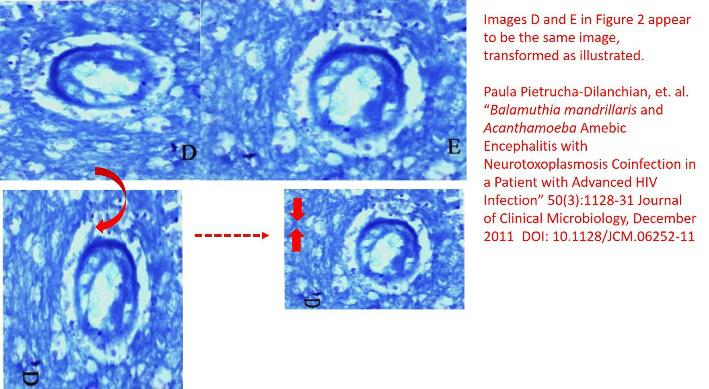
To a non-scientist, it is difficult to see how this type of image manipulation could occur accidentally during figure assembly, and the similarity is strikingly obvious with the two images appearing in the paper side-by-side. Perhaps the absence of an innocent story explains the lack of response to the PubPeer concern. Sometimes the paper I’ve flagged is published by a lower-quality or predatory journal, which could explain the reason a pre-publication peer review did not catch this and why neither the authors or journal will bother to correct the record. <shrug>
Example 3.
Sometimes after I post a paper to PubPeer, authors and other readers will both respond, and I’ll generally keep my head down as both sides make their cases. As I don’t have the scientific background to add any substance to the debate, I basically stay out of it after my initial post. Here’s one of those (link).

At the end of that thread, the author seems satisfied that they have provided a sufficient response, although in my reading, other commenters didn’t seem as convinced.
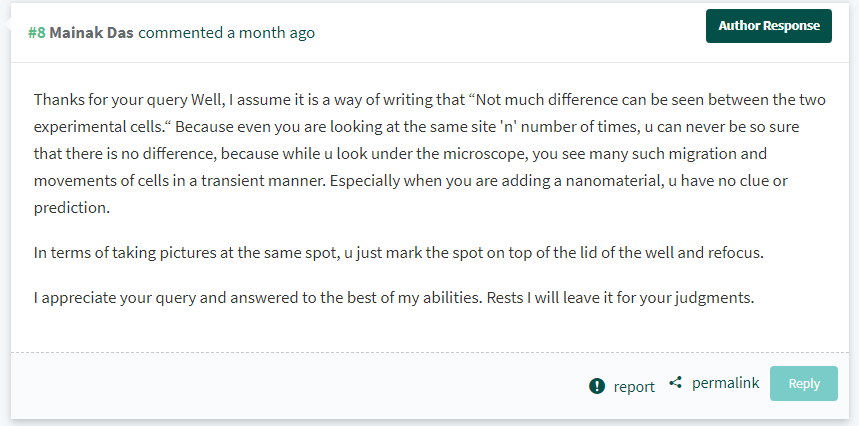
I hesitate to send a notification to a journal in these type of cases, because I really don’t know whether any of the concerns discussed in the thread are worthy of their attention. But I have had correspondence with journals about cases I have reported and they have generally been appreciative if not always supportive of my concerns.
Example 4.
Another image problem, another PubPeer post, another ghosting by authors. Probably a simple error, so not sure why authors don’t respond on PubPeer since they have confirmed emails.

Example 5.
Some of my PubPeer posts get author replies that make even a non-scientific amateur to roll my eyes, and in this thread, Dr. Bik chimes in to indicate she didn’t believe the authors either.

“Thank you for your attention. We have verified the images. The images in Figure 5C (Left Panel) and 5D (Left Panel) marked with green border represent vehicle (DMSO) injected controls hence there was a mix-up. However, images in Figure 5B (Right Panel) and 5C (Right Panel) marked with the blue border have been taken at different locations of the same section. Images in Figure 5A (Left Panel) and 5D (Right Panel) marked with the red border are similar. This mistake has occurred inadvertently during the selection of images for preparing the final panel for publication. We communicate to the journal about this inadvertent mistake to notify an erratum to this effect. This correction does not change in any way the content of the study. G Bhanuprakash Reddy”
In reply, Dr. Bik:
“The duplications in Figure 5 do not appear to be simple errors during the preparation of this Figure. These are not simple duplications, but instead appear to show stretching in the panels marked in green and blue, suggesting that these are more than just figure assembly errors. Even if these are errors, it is unexpected that 3 errors were made in a single figure. Could the authors please comment how three inadvertent mistakes could happen within one figure?”
You can read the rest of the thread at the link.
I do get some feedback on PubPeer posts when my amateur status takes me off course, but this doesn’t happen too frequently thanks to the support of my followers on Twitter:
“would the presence of a splice affect the result? If they were presented as separated lanes, would it affect the interpretation? This would provide context for what sort of “comment” you are requesting from the authors. Note that in these gels the key feature is the pattern of mobility, and not the intensity level (where it is more important to confirm that the samples were run side-by-side).”

I don’t take these valid concerns and comments personally. I am still an amateur and I am still learning.
Interesting episodes
Below I recount some of the more interesting (to me) episodes in the 6 months I’ve been doing this. Some of these have been written up on Dr. Bik’s and Dr. Schneider’s blogs, so please read their sites for more details.
William Figg – July 2019
I often browse ResearchGate looking for papers with images that might have problems. In early July, I came across the image below.
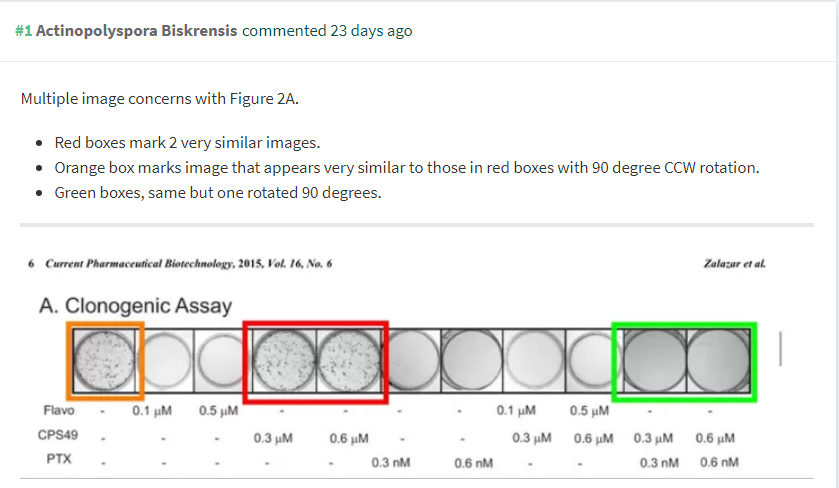
I posted a “Help with another?” message on Twitter and two followers responded to acknowledge that they agreed this might a problem image, with one pointing out the issue with left-most image. I posted this to PubPeer and the last author acknowledged “unintentional image duplications” and provided a replacement image purportedly from the original thesis of the first author. Again, with the urging of a Twitter follower, I looked at that thesis and the image wasn’t identical to the one published there.
I noted on Twitter that while many of the authors were with an institution in Argentina, the author list included a William Figg affiliated with the National Cancer Institute (US). A quick Google search showed that he is a senior member of that organization and that he was on Twitter, so I tagged him there. To my surprise, he responded on Twitter that he was looking into the matter. With his involvement over the July 4 holiday weekend, the issue was swiftly resolved with the last and senior author pledging to retract the paper due to “multiple issues” (as described by Dr. Figg). While I was pleased that my inquiry resulted in a correction to the scientific record, to my personal dismay, it appears that this paper may be the PhD thesis of the first author, which could result in additional consequences for that person. Hmmm. Dr. Bik had warned me of real-world consequences of this type of work and I’m not super comfortable possibly hurting someone’s probably legitimate career.
Satire works?
One thing that I’ve done on Twitter that seems to catch the attention of some authors whose work I’ve questioned on PubPeer is (what I call) critical humor. No news to anyone reading this that there are some big egos in science, and authors sometimes try bullying tactics in response to PubPeer questions and concerns, while others have responded with implausible explanations for misconduct masquerading as mistakes. I’ve learned that personal criticism will get me put in moderator prison on PubPeer and I was banned once on Twitter, but I’ve found some authors to be more responsive to satire than honest concerns expressed about their work. Note: while the individuals I’ve poked fun at may not appreciate the humor at their expense, in the legal jurisdiction from which I write, laws protect speech that is critical of public figures (scientists publishing their research) and commentary about matters of public concern (scientific and medical ethics), both of which apply here.
For example, Gary Stacey initially dismissed concerns expressed about multiple papers, but after a while, the repeated attention I and others were bringing to the matters got his institution to acknowledge that they were looking into the matters. I created the image below as a tribute to how Dr. Stacey treated Dr. Schneider’s comments on Twitter, which I suspect help goad Dr. Stacey into action.

Dr. Richard Fleming initially had an account on Twitter on which he flogged his “research” (published in low quality and predatory journals, and the vanity press articles he had published. After facing much criticism on Twitter and elsewhere, he dropped off Twitter. Later, a user surfaced that I suspected was a sockpuppet created by Fleming (@Veritas34407030) self-described as “Journalist with experience sifting through BS,” who blocked me after I responded to “Veritas” with a couple of satirical images of Fleming. While “Veritas” stayed in character for a bit, he blew his cover with a July 4 tweet about Fleming’s patented method “FMTDVM,” and “Veritas” has been pretty quiet recently.
I gave Dr. Fleming the nickname “Dr. who?” because of his relentless and shameless (and so far fruitless) self-promotion and created the image below in his honor. The photograph is a still shot of a short acting video posted to YouTube (worth a watch), because yes, he’s an actor too.

Last here is an image I’ve used a couple of times on Twitter to illustrate the point that a figure that appears to have been assembled from multiple images is probably misconduct, not just a mistake.
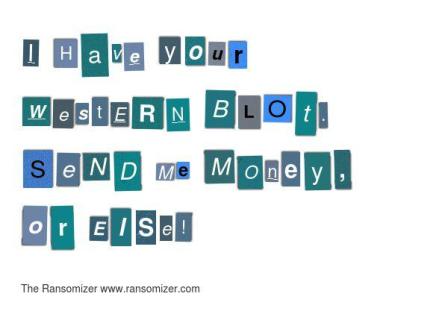
Conclusion
Lastly, I want to say that my reception by the “real” scientific community on PubPeer and Twitter has been surprisingly warm. I have multiple followers who have expressed appreciation of my efforts (and sometimes my humor) and very few people have been critical. On PubPeer, the moderators have indirectly coached me to stick to their house rules by putting me in the moderation penalty box on one occasion and on Twitter I was banned for a week after a post that was interpreted as “targeted harassment” under their terms of use. As I mentioned above, there is one user on PubPeer who has been more critical than others in correcting my mistakes or identifying “misflagged” images, but I note that their behavior isn’t only directed at me and I certainly defer to their greater knowledge and experience. I hope to continue to learn and help clean up the scientific record. It has been fun so far.
I’d like to end this post by soliciting reader feedback. Whether or not you have encountered my posts on Twitter or PubPeer before, what do you think about a non-scientist doing this? Should a non-scientist even be allowed on PubPeer? Can you recommend training or references that would help me do a better job (and not distract professionals like Dr. Bik and Dr. Schneider as much)? Any other criticisms, suggestions or ideas?

Donate!
If you are interested to support my work, you can leave here a small tip of $5. Or several of small tips, just increase the amount as you like (2x=€10; 5x=€25). Your generous patronage of my journalism will be most appreciated!
€5.00
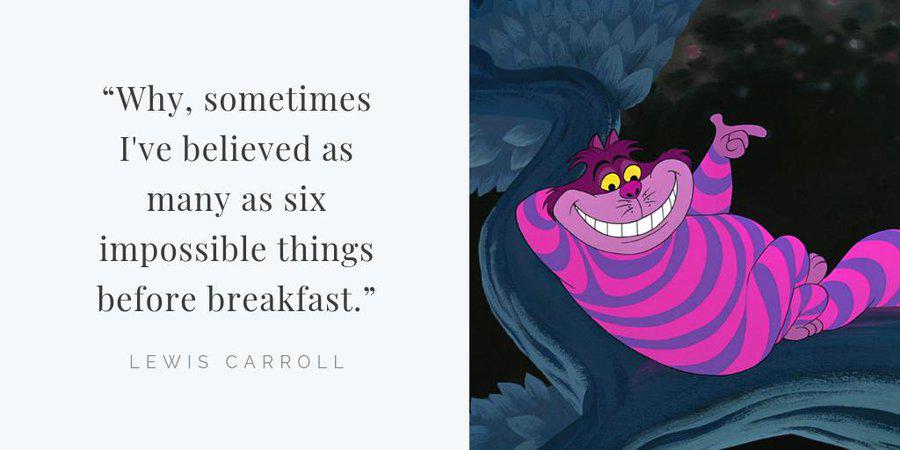
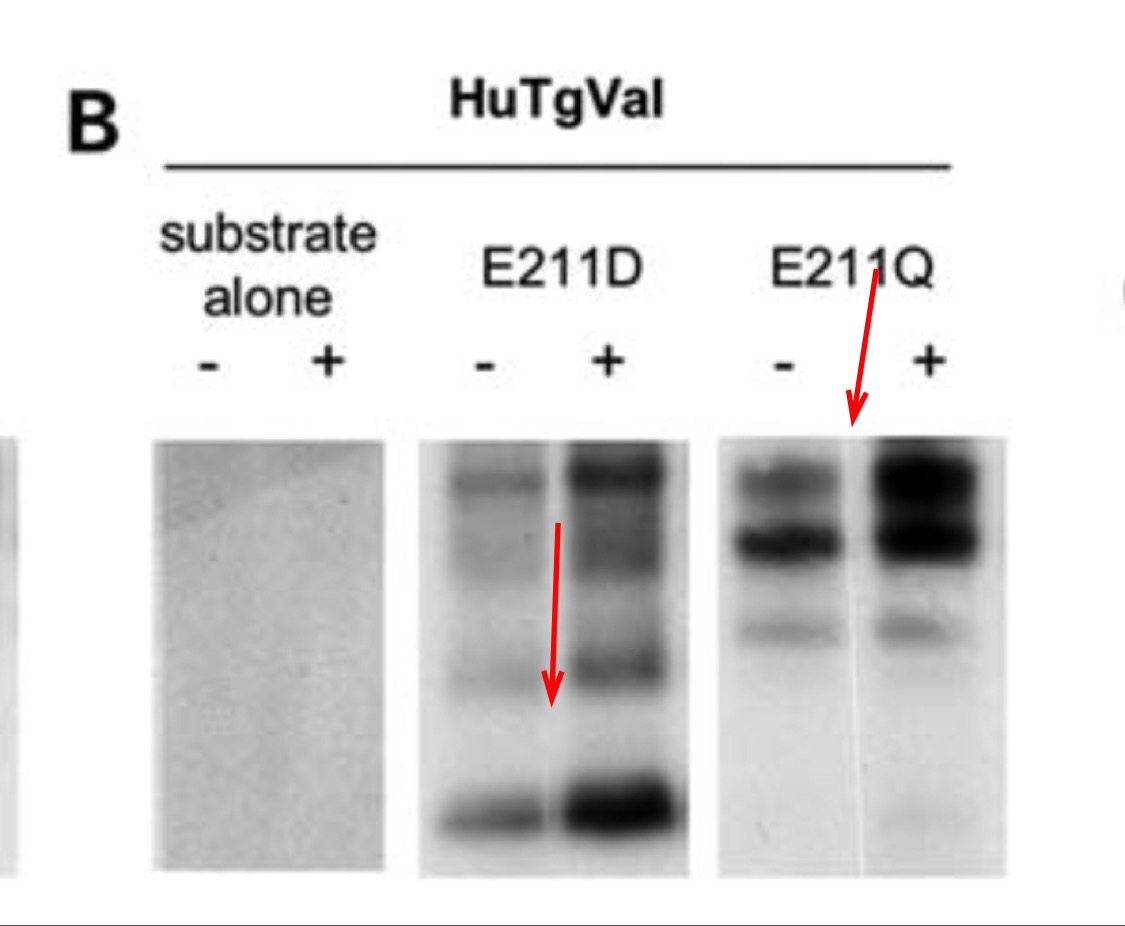

I have not been involved in postpublication peer review for a while now. It is just a waste of time. The vested interests are too high and the system absorbs it too easily without changing anything. However, I enjoy reading your post. Frankly, it doesn’t matter that you are not a scientist, since most of the time scientists in the biomedical field also do not understand the science of articles. I am not being sarcastic here, the average scientist cannot properly dissect a paper.
Anyway, for each manipulated picture that you find, there are 30 scientific articles with cleverer cheating. The focus on the picture manipulations will make them disappear in future work but will not reduce the overall cheating.
Measurement would be simple, namely severe punishment, but it is exactly those who cheated who make the rules and therefore the rules are extremely lenient.
Yes, it makes no sense. Yes, it is a waste of taxpayer money. Yes, important medical finding can’t be made because of the fog created by all false papers. Yes, this all can easily be changed. Yes, nobody in power wants to change this.
LikeLiked by 1 person
Thank you for your comments. Yes, I’ve noted on Twitter that I’m only spotting the sloppiest cheats. With a couple of tweaks on an image, I could make deliberate manipulation much more difficult to catch. I figure the bad guys will get even better at hiding their efforts, but also hope that forensic image tools will improve in parallel.
LikeLike
Only the most stupid cheaters use the same picture several times, tweaked or not. A normal scientist has loads of unpublished pictures from which he can choose, so that cheating can’t be proven. You have to understand that what you find is only the top of the iceberg, the heavy bottom of that iceberg being made of papers with “selective” presentation of actually acquired data which because of the selectivity are misleading (say you throw 1, 3 and 4 with a dice, and write that you threw 3 and 4). The system selects for speed and clean stories, so that’s what scientists produce. Before condemning the individual scientists, you have to realize that many of them will lose their career if they don’t comply. Imagine a boss screaming daily at you that he wants certain results and that he wanted them already last year.
LikeLike
Yes, they should all burn in hell. They kill patients and destroyed science. However, through CROWDing and group enforcement things can change but not the odd here and there story. Organization and ganging up and EXPOSURE needs to happen. Nobody is taking initiative on this front…that is another big issue.
LikeLike
Good example how taxpayers can control spending their money by scientists. I always loved Cheshire cat anyway 🙂
LikeLike
I think that what you are doing is highly commendable.
By exposing research fraud and posting it on Pubpeer you are providing a valuable service to the scientific community. For instance, when I am asked to review a paper or a grant, I first check on Pubpeer, and also on this blog, to see if the researchers I am reviewing have any problematic papers. Sometimes it can be seen that the same sort of data manipulation is repeated.
If all problematic papers could be entered on Pubpeer, and if all scientists checked on there before undertaking peer review, it could help stop groups with low standards of research integrity from obtaining further funding and publishing more substandard/fraudulent papers.
Open Data might also improve the situation.
Generally, there needs to be less tolerance of research fraud, and more value given to honest research that is based on solid foundations.
LikeLiked by 1 person
Keep up the good work. The advantages you have are a clear eye for the essentials of malpractice, and a lack of the revulsion a practicing researcher would feel from the fear of contamination. Don’t worry about the lack of response from authors, which is almost the norm for real stinkers on PubPeer. If you put the PubPeer extension on your browser, you will see how all commented papers are highlighted on PubMed, Google, etc. with a link to the comments. I find that feature quite useful when doing literature searches. I never cite a stinker.
LikeLiked by 1 person
“This guest post comes from a non-scientist, not even a former scientist or a citizen scientist or someone who always wanted to be a scientist.” If you are not a scientist, you are not qualified to judge scientific works. No matter how good you are at catching some irregularities in the pictures or whatever. You are not qualified, cause you don’t understand the underlying scientific concepts behind those pictures. Science should be only judged by scientists. You can read the scientific papers and think for yourself that these pictures maybe are manipulated or not but you are not qualified to accuse scientists for fraud and ruin their lives, no matter you are right or wrong. It’s a serious business. I emphasize it’s a real business and not only scientists’ lives depend on publishing, also their relatives’ lives depend on this business. You should understand that if somebody cheats in a paper, there must be a real reason for that. Nobody is insane or sadistic to publish nonsense. In my experience, in 99% of times, experiments don’t work at all and as a result it will not lead to anything publishable. It means 99% of scientists should change their careers cause the science is not for them. But please understand that a lot of people can’t do anything except this ridiculous business that you call it science. You guys are funny, cause it seems you don’t live in the real world. You see the science as some sort of sacred religion that all the bad cheaters should be burnt in the hell. But, this view has nothing to do with this real world. For you guys, it’s really easy to say, OK, if you can’t do a good science, leave it and find an another job or maybe find a janitor work. But, keep in mind, you are talking about people and they are human like you and they do everything to have a good life, and personally I believe if this shit hole that you call it science is the only way to have a better life, cheating on papers is just being generous to this corrupt society and they are really respectable if they don’t steal things or don’t murder people. Fortunately, I truly believe that 99% of scientists don’t give a shit to your thoughts at all, and that’s a good sign I believe, that your geeky thoughts are abandoned by the scientific society as general. I introduced PubPeer to a scientific community, which they classified themselves as a community that have a really high standards in research integrity. They were like what the fuck are you talking about?! 99% of them said they don’t give a shit to PubPeer or whatever shit hole you use for post-publication review.
LikeLike
You should understand that if somebody cheats in a paper, there must be a real reason for that.
Yes, they want to publish a paper (to improve their finances or their careers); and they don’t give a damn about the other researchers who might waste years trying to replicate their fraudulent results or trying experiments that rely on those fraudulent results.
LikeLiked by 2 people
@Mike you may actually suffer from a personality disorder. I would encourage you to get a psychiatric evaluation.
LikeLike
I can only repeat: if you can’t do good science – leave it. Science is not business for God sake. Do something useful istead of science if 99% of your experiments fail.
LikeLiked by 1 person
@Challenger exactly. Also its an absurd claim that 99% of experiments don’t work. I have never been in any lab where this is the case. Mike simply have no clue about reality.
LikeLiked by 1 person
Photoshop manipulation is easy to spot, and it does not need a PhD. You should not fake research data just because you need income. It is a crime. And lastly, if your 99% of experiments fail, you need a tutor who teaches you to set up proper hypotheses. Still there are many technical difficulties, but 1% success rate is very bad, and I doubt that that would be common in any lab.
LikeLiked by 1 person
Well “Mike,” you are in good company. Dr. Fleming (Dr. who?) shares a lot of your opinions about people needing to be experts before having an opinion about the research papers (sic) that he has foisted on the public. Fortunately, it doesn’t appear that anyone is taking him seriously, other than himself. Few people have the skills to ramble on as long as he does without making much of a point, but you may give him a run for his money. For all that, I appreciate you sharing your opinion… again.
LikeLiked by 2 people
Pingback: Il consenso sul clima degli economisti - Ocasapiens - Blog - Repubblica.it
I think the funding agencies, Journals, Editors and peers in the research field should heavily invest in data integrity with severe punishment for abusers. As long as there is no or little consequence for fakery, We can never be sure about the quality and integrity of research.
LikeLike
I totally agree as I always say original data should always make part of a publication as well as peer-review should be public
LikeLike
See Frontiers… Anybody cares who peer-reviewed those piece of shits? Of course not! Even if you put peer-review process as a late night show every night in the TV, it doesn’t make it less error prone or better… There is a reason for single or double blind peer-review process…
LikeLike
“Mike,” I’m confused. How is your confidence in the peer review process (blind or not) consistent with your belief that data fraud is OK (better than theft or murder)? Doesn’t pre-publication rejection of papers hamper the ability of authors to support their families even more than post-publication review does?
LikeLiked by 2 people
Dear Mike,
You state in your posting of 2 August 2019: “If you are not a scientist, you are not qualified to judge scientific works. No matter how good you are at catching some irregularities in the pictures or whatever.”
I take it for granted that you are aware that this implies that you are using the ‘argument from authority (argumentum ab auctoritate)’ to argue that you and others don’t need to consider / investigate etc. concerns (about pictures) in articles in oeer-reviewed journals when they are raised by someone like ‘Cheshire’.
I also take it for granted that you are aware that there will be people at Planet Earth who will start with argueing that using the ‘argument from authority (argumentum ab auctoritate)’ in such cases implies that the concerns about pictures raised by ‘Cheshire’ are tough / impossible to refute.
So what are your own qualifications? Can you please provide a link to a recent cv with a full overview of your scientific qualifications?
You also state is this posting: “Science should be only judged by scientists.”
I am working together with lots of others to get retracted a fraudulent study on the breeding biology of the Basra Reed Warbler. This peer-reviewed study was published in a Taylor & Francis journal which is indexed by the WoS. See for backgrounds https://osf.io/5pnk7/ and https://www.researchgate.net/project/Retracting-fraudulent-articles-on-the-breeding-biology-of-the-Basra-Reed-Warbler-Acrocephalus-griseldis
Is is correct to state that you hold the firm opinion that all naturalists, birdwatchers, birders, conservationalists, environmentalists etc., etc, etc, are unable to judge any of the findings of the two reports at https://osf.io/5pnk7/ as long as such individuals do not consider themselves (anymore) as ‘scientist’?
And how about for example students (within this field of research)? Is it correct to state that you hold the firm opinion that all these student (within or outside this field of research) are unable to judge any of the findings of the two reports at https://osf.io/5pnk7/ as long as such individuals do not regard themself (anymore) as ‘scientist’?
And how about the scientific qualifications of all authors of Porter et al. (2013), see https://www.tandfonline.com/doi/full/10.1080/09397140.2015.1023424 ?
Do you hold the opinion that people with inappropriate schooling are now allowed to be (co-)author of articles in peer-reviewed journals which are indexed by WoS?
How about for example your views about the qualifications of Dick Mol https://en.wikipedia.org/wiki/Dick_Mol (‘Mol could not afford to attend higher education after high school and he joined customs service in 1974.’). Etc.
Thanks in advance for a response.
Klaas van Dijk / Groningen / The Netherlands
LikeLiked by 1 person
Pingback: Dame Kay Davies, Commander of the Photoshop Empire – For Better Science
Pingback: Fake spectra googling #CleanYourScience – For Better Science
Thoughts on the Gautret et al. paper about Hydroxychloroquine and Azithromycin treatment of COVID-19 infections March 24, 2020
LikeLike
IMO, the history of science will remember Gautret as a brave hero who was unfairly crucified by Big Pharma employed fascists, but vindicated in the end by the totality of empirical evidence (https://c19hcq.com/). The master of institutional deception, Lord Fauci, dismissed Gautret’s paper about Hydroxychloroquine and Azithromycin treatment of COVID-19 infections in March 2020, as a mere “anecdotal” (hearsay) annoyance when in Truth, Gautret’s life saving early treatment approach to use HCQ was based on a major scientific discovery made by CDC scientists studying SARS-1 in 2003 with more than 500 citations published at the time Fauci lied to the world and committed 10’s of 1000’s of people infected by his “gain of function” mutant “common cold” viral CPP bioweapon. I applaud anyone who seeks to expose scientific misconduct, but we need armies of sleuths going after scientific misconduct like this that thousands of innocent people. https://www.theguardian.com/world/2020/jun/04/covid-19-lancet-retracts-paper-that-halted-hydroxychloroquine-trials
LikeLike
Not clear to me how “armies of sleuths going after scientific misconduct” can UNretract a paper. At best, “sleuths” can point out flaws in already-published research, but the journals make their own decisions on accepting papers for publication and then for retractions.
LikeLike
Wasn’t it IHU people who surrounded themselves by actual French fascists like Florian Philippot and attacked Jewish critics on Twitter with antisemitic tirades and Holocaust jokes?
https://forbetterscience.com/2021/02/03/frances-ugly-brown-derriere/
I guess you use the Kremlin definition of “fascists”, meaning “everyone who criticises our own fascism”.
Get off my site “Logos”, there are limits to the stuff I will accept for entertainment.
LikeLike
‘Logos’ sounds a lot like that other website-spamming pimp ‘Brian’.
LikeLike
Pingback: Society journal Biochemical Reports, ravaged – For Better Science
Pingback: The impossible Toni Camins – For Better Science
Pingback: Whodunit in Bulgaria – For Better Science